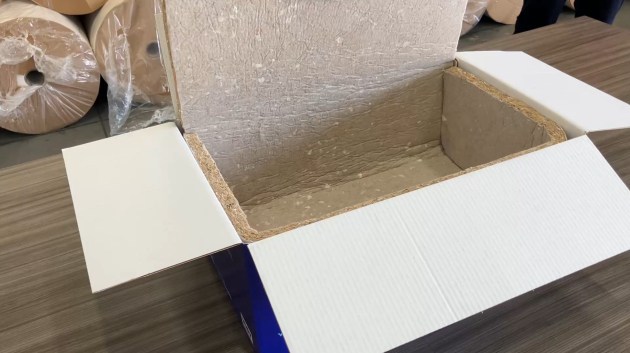Visy has developed a new insulation solution, Visycell, that could help drive the shift away from expanded polystyrene (EPS) in the food delivery supply chain.
The development is timely, with growing pressure on the packaging value chain to find circular solutions that reduce packaging waste. Less than 20 per cent of EPS put on the market in Australia is currently recycled, according to the Australian Packaging Covenant Organisation (APCO).

Visycell is a fibre-based thermal insulation liner which, like EPS, has strong thermal and cushioning qualities. Unlike EPS, Visycell is recyclable through kerbside recycling bins.
Made from cardboard waste offcuts at Visy’s factory in Truganina, Melbourne, Visycell has been designed for Australia’s hot climate to keep temperature-sensitive food and beverages safe and fresh.
“We’re working hard to help customers ditch problematic polystyrene and we’re pleased to be trialling Visycell as a new alternative,” said Rolland Zhang, New Business Projects manager at Visy.
“We think food and beverage customers will love Visycell – it will keep their product safe and fresh during transportation, is easily recycled and is locally-made.”
Zhang says the product has applications in other end-use markets too.
“We know it’s not just food and beverage companies wanting to ditch polystyrene, which is why Visycell has the potential to also be used to transport fragile goods and in building construction.”
Visy says the insulation material has undergone rigorous testing to ensure it meets the highest standards. It can also be flat-packed, saving businesses on transportation costs.
Visycell has APCO certification for recyclability and can carry the Australasian Recycling Logo (ARL).






